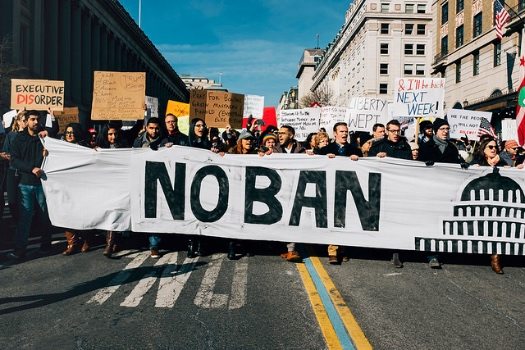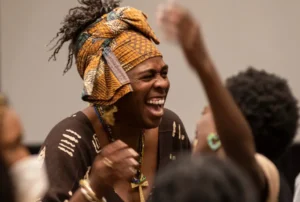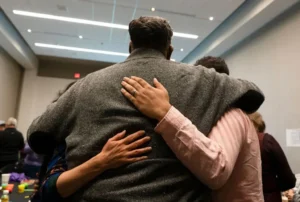
June 29, 2017; Washington Post
As the government rolled out its plans for implementing the SCOTUS-defined narrower version of the president’s immigration executive order at 8 pm ET Thursday night, it “clarified” components of the court order that left room for interpretation. Having heard the government’s decisions, some advocates are calling them “capricious” while others say that they’re designed to split up extended families and exclude refugees with pre-existing agreements with resettlement agencies. The suits have already begun, with one being filed by the state of Hawaii overnight, alleging that the implementation of the SCOTUS order violates and overreaches on its intentions.
One of the areas left unclear in the Supreme Court’s court directive lifting lower court stays affecting the order, for instance, was the definition of “close family.” As reported in the Washington Post, “The administration’s new rules do not allow grandparents, grandchildren, uncles, aunts, cousins, and fiancés. They do allow sons-in-law, daughters-in-law, and stepchildren.” As it happens, the ban on affianced persons was lifted right before the ban went into effect last night, providing little confidence in the clarity of the rationales behind the rules.
The administration also announced that even with existing agreements in place with refugee resettlement agencies, refugees will not be allowed to enter the country without a close family member in the U.S. Those resettlement nonprofits had read the law to say that their formal links with refugees would be sufficient basis for entry. Reactions from refugee resettlement nonprofits and advocates to the vague but threatening restrictions on their work came swiftly, as reported by Politico:
Sign up for our free newsletters
Subscribe to NPQ's newsletters to have our top stories delivered directly to your inbox.
By signing up, you agree to our privacy policy and terms of use, and to receive messages from NPQ and our partners.
“We’re going to do whatever needs to be done to make sure the government doesn’t gut the Supreme Court decision as it simultaneously guts the refugee program,” said Becca Heller of the International Refugee Assistance Project.
“They’re halting almost the whole refugee program, which I think is a pretty gross violation of the Supreme Court’s order.…We’re going to need to challenge that. We’re working out precisely the best way to do so.”
“There are 20,000 to 25,000 refugees not yet here who are already clients of refugee resettlement agencies who have been preparing for their arrival,” said Justin Cox, an attorney with the National Immigration Law Center. “The government’s interpretation of this as to refugees will affect tens of thousands of the most vulnerable people in the world. We will be seeking recourse. Certainly, efforts will be made to fix this.”
Meanwhile, legions of legal advocates have organized to represent individual travelers and to challenge the implementation of this decision.—Ruth McCambridge












